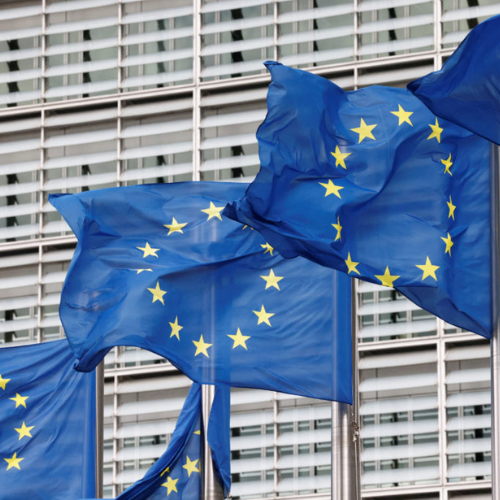European Union countries are speaking out more strongly against violent acts carried out by Israeli settlers in the occupied West Bank. Olof Skoog, a top official from the EU’s diplomatic service, has revealed that some member states are now looking at proposing new sanctions. These measures would focus on settlers believed to be responsible for severe human rights violations against Palestinians.
This is not the first time the EU has taken action. Last year, it placed sanctions on five Israeli individuals and three organisations. These were found responsible for “serious and systematic” violations. But now, with violence continuing and the Israeli government approving more settlement expansions, the EU’s patience appears to be running out.
Many European leaders are frustrated by what they see as Israel’s failure to respond to international concerns. Some countries, such as Spain and Ireland, are pushing for wider recognition of Palestinian statehood. France, under President Emmanuel Macron’s leadership, is also weighing similar actions. The country is set to co-host a peace conference with Saudi Arabia in June.
Despite the pressure, Israeli Finance Minister Bezalel Smotrich announced the approval of 22 new settlements in the occupied region. These moves, critics say, go against international law and are making the situation worse for Palestinian communities.
$450 Billion Vanished! Western Sanctions Leave Russia’s Budget in Ruins
EU Examines Human Rights Deal with Israel
In a major political move, the EU has started a formal review to examine whether Israel is still following the human rights rules of its association agreement with the bloc. This agreement gives Israel certain benefits, such as easier trade, but only if both sides respect human rights and international law.
Seventeen of the EU’s 27 member countries have backed this review. But suspending the deal entirely would need all 27 to agree. According to Kaja Kallas, the EU’s foreign policy chief, formal options will be presented for discussion in June. Diplomats say reaching full agreement will be difficult, as some countries have long-standing ties with Israel and believe that dialogue is more effective than punishment.
Skoog stated that while the EU understands Israel’s need for security, its actions must still follow international humanitarian law. He stated that leaders at the highest levels, including heads of state and government, have clearly communicated that Israel is expected to follow international rules, even during times of war.
In Gaza, the humanitarian crisis continues to worsen. The Hamas-led attacks on Israel on October 7, 2023, killed around 1,200 people and led to 240 hostages being taken. In retaliation, Israel initiated a major military offensive, with health officials in Gaza reporting that more than 54,000 Palestinians have lost their lives.
America Strikes Back: Sanctions Hit U.S. Ally’s Tech Firm Funnull Over Global ‘Pig Butchering’ Scam
Recently, international pressure forced Israel to reopen limited aid routes into Gaza. Supplies are now allowed through two channels — one run by the UN and another by the Gaza Humanitarian Foundation, a group backed by the US and Israel. However, the UN has criticised this second channel, warning it undermines humanitarian principles.
Shifting European Tone and Growing Disapproval
Germany, traditionally one of Israel’s strongest allies, has noticeably shifted its stance. Chancellor Friedrich Merz criticized the intensity of Israel’s airstrikes on Gaza, while Foreign Minister Johann Wadephul described the situation as “unbearable,” marking a clear change in tone.
France, the UK, and Canada have all warned Israel that if the military actions in Gaza and settlement expansions continue, targeted sanctions could be introduced. These would be aimed at individuals and organisations responsible for violating international laws.
As tensions rise, the EU’s main message is clear: Israel must make changes or risk further political and economic fallout. Yet, divisions remain within the EU itself. Some countries support harsher measures, while others, wary of damaging relationships, continue to favour dialogue.
During a recent visit to the United Arab Emirates, Olof Skoog and UAE official Lana Nusseibeh co-chaired a high-level meeting between the EU and the Emirates. They discussed not only the Gaza conflict but also other regional crises, including in Syria, Lebanon, Yemen, and Ukraine.
